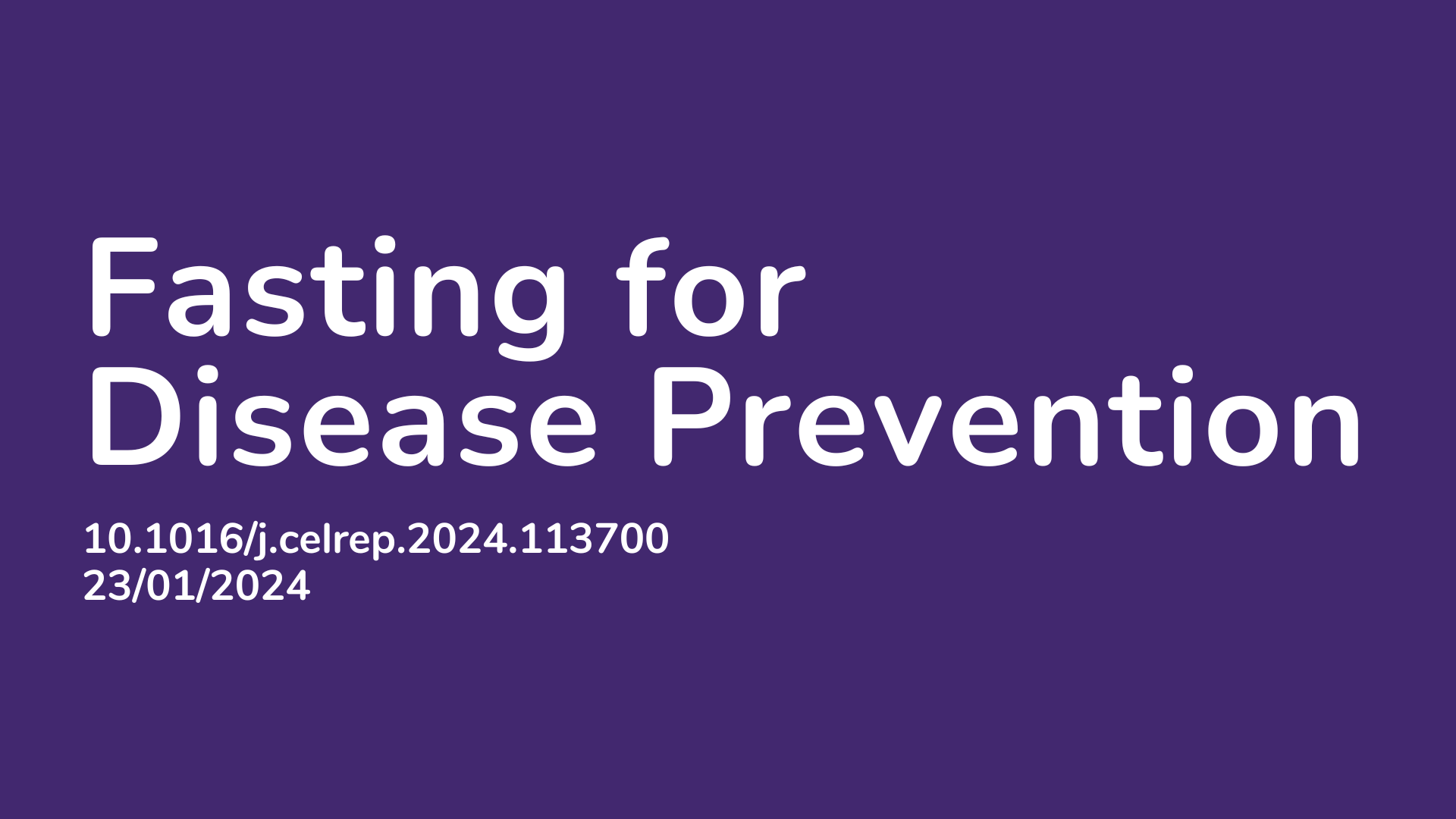Summary:
This paper may have uncovered a new mechanism by which fasting reduces inflammation, a common side effect of the body’s immune response underlying many chronic diseases. The study shows that fasting increases levels of arachidonic acid in the blood, which is a polyunsaturated fatty acid known for its anti-inflammatory properties. The increase in arachidonic acid levels then suppresses the activity of the NLRP3 inflammasome, a key player in triggering inflammation. This discovery suggests a potential avenue for reducing chronic inflammation associated with a high-calorie Western diet. However, further research is needed to determine whether fasting can protect against specific chronic diseases.
Elevated interleukin (IL)-1β levels, NLRP3 inflammasome activity, and systemic inflammation are hallmarks of chronic metabolic inflammatory syndromes, but the mechanistic basis for this is unclear. Here, we show that levels of plasma IL-1β are lower in fasting compared to fed subjects, while the lipid arachidonic acid (AA) is elevated. Lipid profiling of NLRP3-stimulated mouse macrophages shows enhanced AA production and an NLRP3-dependent eicosanoid signature. Inhibition of cyclooxygenase by nonsteroidal anti-inflammatory drugs decreases eicosanoid, but not AA, production. It also reduces both IL-1β and IL-18 production in response to NLRP3 activation. AA inhibits NLRP3 inflammasome activity in human and mouse macrophages. Mechanistically, AA inhibits phospholipase C activity to reduce JNK1 stimulation and hence NLRP3 activity. These data show that AA is an important physiological regulator of the NLRP3 inflammasome and explains why fasting reduces systemic inflammation and also suggests a mechanism to explain how nonsteroidal anti-inflammatory drugs work.
Article Publication Date: 23/01/2024
DOI: 10.1016/j.celrep.2024.113700



